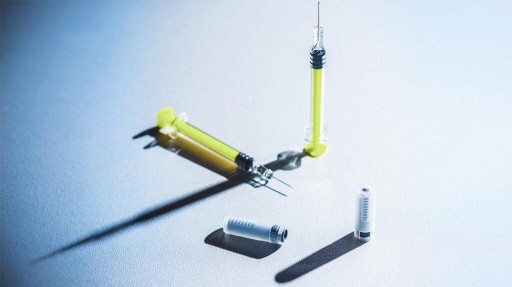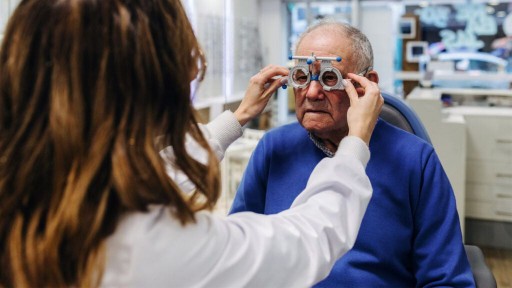
- All people need some cholesterol, but having too high cholesterol levels can be dangerous, particularly to areas of cardiovascular health.
- Research is ongoing to find new ways to help people keep cholesterol within a healthy range.
- Data from a recent study on animals found a vaccine that may be effective at lowering cholesterol.
- Future research is required before this data can be applied in clinical practice with humans.
Cholesterol levels outside a healthy range can be dangerous for heart health, but what options exist for lowering cholesterol?
Most often, people can manage cholesterol levels by changing components of their lifestyle or taking certain medications. However, the options for assistance with cholesterol management may be expanding.
A study published in
The study looked at mouse and nonhuman primate models, and found that a bivalent vaccine effectively lowered cholesterol levels.
The results point to promising research and the potential development of another way to help people keep cholesterol in a healthy range.
Developing a vaccine to lower cholesterol
“The common medications to treat elevated cholesterol are statins,” he told us. “However, statins don’t work for everyone, and some patients on statins experience side effects.”
“Recently, a new class of medication, called PCSK9 inhibitors, have been approved to lower cholesterol. PCSK9 inhibitors are very effective at lowering cholesterol, but unfortunately they are also very expensive, which has limited their use. We were interested in developing a lower-cost vaccine-based approach for inhibiting PCSK9. The idea behind this approach is that the vaccine induces antibodies against PCSK9, which then lower cholesterol levels.”
– Dr. Bryce Chackerian
The research notes that the body removes low-density lipoprotein (LDL) cholesterol, also known as “bad” cholesterol, via the low-density lipoprotein receptor (LDL-R).
The protein PCSK9 helps inhibit this process, thus leading to higher levels of LDL cholesterol in the bloodstream. There are a few ways to inhibit PCSK9 — one potential way is through a vaccine.
The study explored the efficacy of these potential vaccines in monkeys and mice. The researchers looked at the effectiveness of two PCSK9 vaccines: single and bivalent.
They found that single and bivalent vaccines lowered cholesterol levels among mice. However, the single vaccine type did not lower LDL cholesterol to a statistically significant level.
Among monkeys, researchers were able to carefully measure cholesterol levels over time to help test vaccine efficacy. They also tested how the vaccines worked in combination with statins.
They found that the bivalent vaccine was effective in lowering LDL cholesterol. However, the single vaccine was not effective on its own and had to be combined with statins to be effective.
Dr. Chackerian, Ph.D. explained: “In our study, we identified a vaccine that dramatically lowers cholesterol in two different animal species. In monkeys, for example, vaccination led to a 30% reduction in LDL cholesterol levels, without requiring statins. Importantly, the vaccine also had long-lasting effects on cholesterol levels, meaning that it is likely that patients would not need frequent injections.”
Study limitations and continued research
Is this anti-cholesterol vaccination regime likely to be effective in humans? First of all, the researchers note that their study focused on animals, so more research is required before doctors could use the vaccine in clinical practice with human patients.
The researchers also noted that the average baseline of LDL cholesterol in the monkeys was normal, which might have limited how much LDL was lowered.
It is also not entirely clear why the bivalent vaccine was more effective in the monkeys, so this is another area for researchers to explore.
The research also included a small number of monkeys, meaning future studies could include larger sample groups. More research is needed to determine the vaccine’s long-term effectiveness and the potential need for boosters.
Furthermore, the study authors note that the experimental vaccine in their study was less effective than other cholesterol-lowering methods. Nevertheless, they point out that even lowering cholesterol by a small amount can play a crucial role in decreasing cardiovascular events.
“Unfortunately, there are insufficient data to show how long, or even if, this type of vaccine would lower the LDL in humans. The larger issue is the magnitude of benefit: no vaccination has been shown to be as effective as current therapies, and in this current study, the magnitude of LDL reduction is less than what is achievable with current inexpensive statin drugs and far less than obtained with administration of exogenous monoclonal antibodies or RNA therapeutics.”
Still, if research moves forward in this area, it could be highly beneficial for individuals at a higher risk for problems from high cholesterol. And it could be potentially used in combination with other therapies.
“Current PCSK9 inhibitors in clinical use, while extremely efficacious, are very expensive. In addition, these therapeutics require routine administration. A vaccine-based targeting of PCSK9 could potentially provide long-lasting lowering of LDL levels with a longer duration of effect. This would lower health care costs for the system while improving cardiovascular outcomes,” he added.
How to manage cholesterol
As noted by the
There is also cholesterol in certain foods. The two main types of cholesterol are LDL cholesterol and high-density lipoproteins (HDL) cholesterol.
Certain
People can make lifestyle and dietary changes to help lower their cholesterol levels. They can also take medications like statins to help reduce cholesterol levels.
But even with these interventions, cholesterol can still be a challenge to keep in a healthy range. This is why it is crucial that researchers continue to explore potential new ways to manage cholesterol levels.








